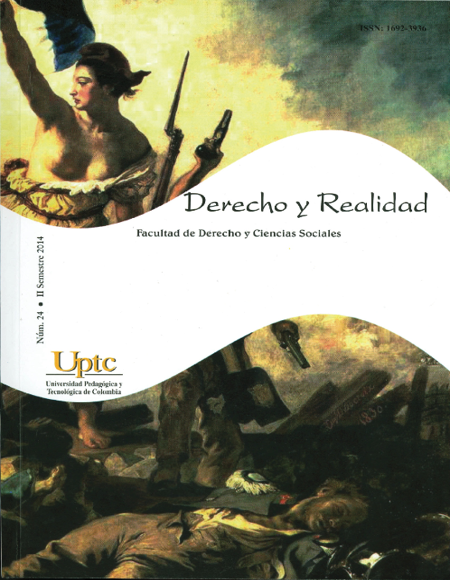The principle of fraternity in the correlate of thehuman rights and the social State of law: towards theconstruction of the state of the art of the principle offraternity in the law

Abstract
In the constitutional narrative is intended to trace the beginning of the fraternity in the solution to the unleashed tensions between the liberal state, the radical democratic model and modern socialism, presented throughout the nineteenth and early twentieth century and which balance formula was found through the social rule of law. In the narrative of human rights in critical perspective, is intended to establish points of contact and divergence between fraternity and the thesis according to which human rights are the result of struggles of the people, i.e., they are plural collective creations, diverse, with specific social and historical contexts. In this context it is appropriate to speak of a critical theory because the complexity of human rights requires to interpret and to observe them from a relational, holistic and heterogeneous vision that incorporates an integration of human vision. It is said on the particular, that the method for study should show human rights in social groups composed of «ideas, institutions, productive forces and social relations of production, of gender and ethnic, but also in their impure nature having to do with their position, layout, temporality, historicity and narration. In their depth must address their core concept in which there are gaps and values, the development of societies and social practices». All this aims to establish an initial map that defines the state of the art of the principle of fraternity in constitutional law.Keywords
Fraternity, social State of law, critical theory of human rights
References
Baggio, A. M. (2006). Introducción al principio olvidado. El redescubrimiento de la fraternidad en la época del Tercer ‘89‘. Buenos Aires: Ciudad Nueva.
Bloch, E. (1980). Derecho natural y dignidad humana. Madrid: Aguilar.
Corte Constitucional Colombiana (2001). Sentencia C-1287. M.P. Marco Gerardo Monroy Cabra.
Costa, P. (2004). ‘Derechos’ en el Estado moderno en Europa. Madrid: Trotta. De Cabo, C. (2006). Teoría constitucional de la solidaridad. Madrid: MarcialPons, Ediciones Jurídicas y Sociales.
Díaz, O. & Olivas, E. (1997). Metafísica e historicidad de los derechos. Madrid: Dykinson.
Guerra, X. (2010). Modernidad e independencias, ensayos sobre las revoluciones hispánicas. Madrid: Fondo de Cultura Económica.
Matteucci, Nicola. (1998). Organización del poder y libertad: historia del constitucionalismo moderno. Madrid: Trotta, Universidad Carlos III de Madrid, Departamento de Derecho Público y Filosofía del Derecho.
Restrepo, M. H. (2010). Teoría crítica de los derechos humanos. Tunja: Universidad Pedagógica y Tecnológica de Colombia.
Uprimny, R. (1995). La motivación de las sentencias y el papel del juez en el Estado social y democrático de derecho. En Pensamiento Jurídico, no. 4. Bogotá: UN.
Villar, A. & García-Baró, M. (2004). Pensar la solidaridad. Madrid: Universidad Pontificia de Comillas.